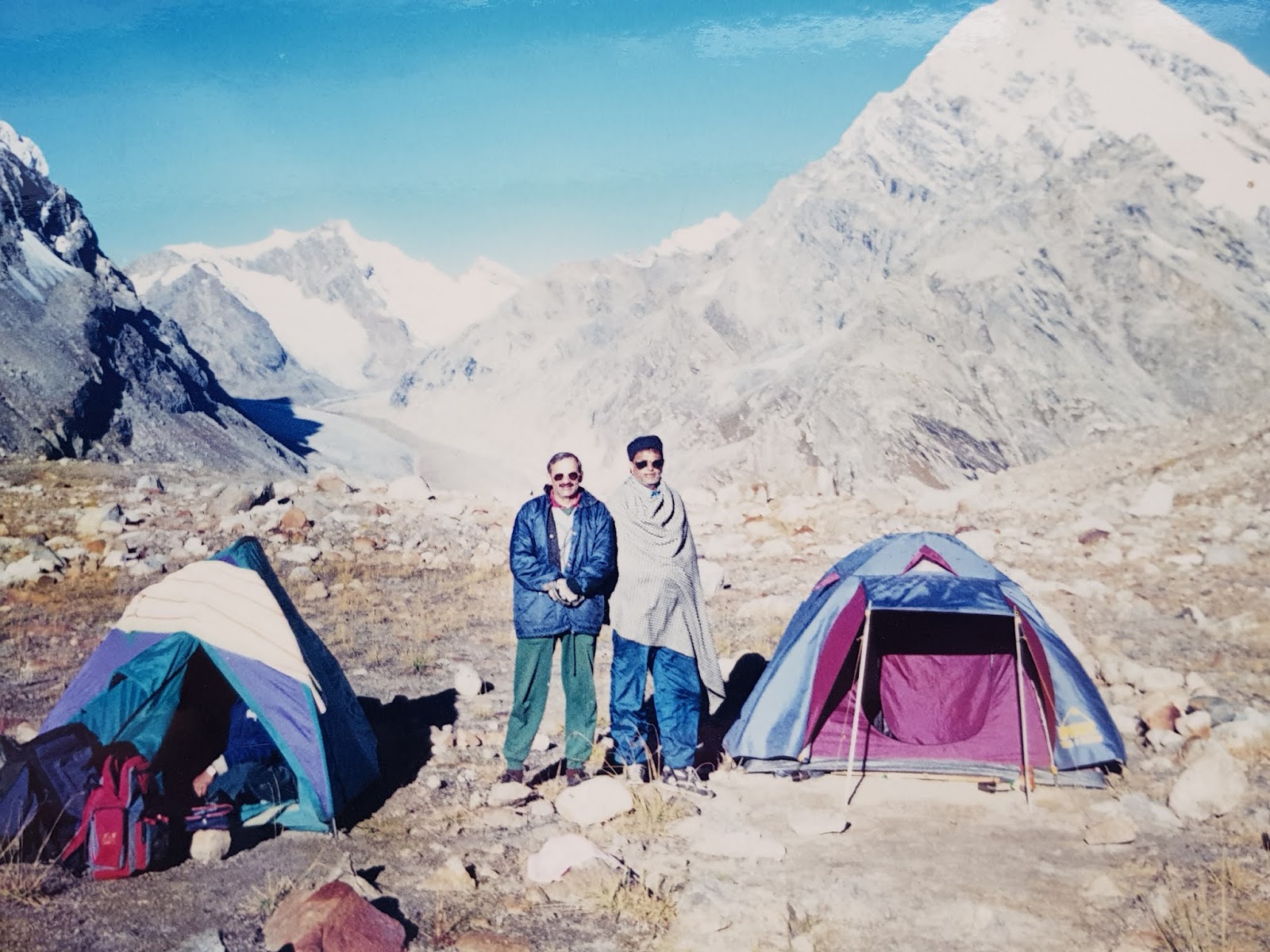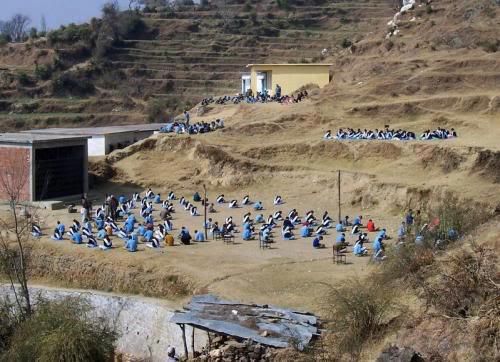I first met Shashi in 1980 when I was posted as Deputy Commissioner in Bilaspur; he was two years older than me. We had very little in common to begin with, but as time progressed we became close friends and discovered that we shared a lot of things that are not visible but are perhaps more foundational than the exterior trappings we judge people by: a desire for a simple life, a passion for trekking, love of nature, a sense of humour (especially the risque type), a low opinion of politicians, and an inability to play good bridge. It was the unlikeliest of friendships but it persisted through the next forty years: even as I moved to different places and postings, Shashi stayed rooted in Bilaspur, looking after a small food processing unit he had established under the brand name ” Shashibhai”. It did modestly well, his wife Surekha was/is a school lecturer, he himself was content to remain a small town boy and so life was good.
Bilaspur is very centrally located, sitting astride all routes to just about anywhere from Shimla, and I invariably used to drop in and see Shashi whenever I passed the town on my tours, which was about once every two months. He even constructed a guest room, especially for me, within his small processing unit where I’ve spent many a night: I was allowed to have a drink here! Shashi himself was a strict teetotaler and vegetarian, though his treasure trove of jokes were mainly non-vegetarian. His favourite was about the chap who made suit cases out of foreskins… but I’ll keep that for another day.
Given our system I was in a position to do many favours for Shashi even within the rules. But not once in these past 40 years did he ever request me for one. When I was Education Secretary, Surekha was posted to a school a few kms out of the town; I asked Shashi if I should post her to a school in the town itself so that she would not have to take those long bus commutes. He refused. He explained that the day he let my official status enter our relationship our fellowship would get tainted and would never be the same again. I learnt my lesson and stayed clear of the subject thereafter. But have you ever noticed- the smaller the town, the bigger the values its residents represent?
Shashi was my constant trekking companion over 30 years, and I will always treasure those evenings together by the campfires, forest huts and tents spent in remote thatches, valleys and passes: Pin Parbat, Kinner Kailash, Bara Bhangal, Kugti, Srikhand Mahadev, the Great Himalayan National Park, Dodra Kwar, Choor Dhar, Hamta pass and many others. He even had the dubious distinction of having saved my life on Pin Parbat: we were crossing a glacier, all roped up, when I fell into a crevasse. Shashi was the guy on the rope just behind me: he immediately fell flat on the ground to prevent himself being dragged over too, dug his heels into the ice and used all of his eighty kilos to pull my sixty kilos out. One doesn’t quickly forget these things.

On another occasion, in 2002 or 2003, we reached the Bara Bhangal village after an exhausting and dangerous descent from the 18000 feet high Thamsar pass. Totally exhausted, the party collapsed in the forest hut, unable to move any limb. After some time I noticed that Shashi was missing; a search revealed him sitting with the Patwari in the Patwarkhana, preparing a “tatima” or map of a plot of land. Apparently, my friend had become so enamoured of the savage beauty of this remote village in the Ravi valley that he wanted to buy some land here! It took me the whole night to convince him that it was an insane idea. I reminded him that it had taken us four days of perilous trekking to reach the village, that he would never be able to haul his arse here in his dotage, that Surekha would feed him to the fishes in Gobindsagar lake when she heard of this. He finally relented, but kept the tatima with him anyway, just in case he changed his mind at a later date.
He never did, of course. A few years ago Shashibhai’s kidneys began failing, he had to go on dialysis, his eyesight also deserted him because of diabetes. I had moved on to Delhi after my retirement but spoke to him every couple of months. I last visited him in Bilaspur in 2018, and had planned to go again next month. Guess I left it too late, for now Shashi has left for ever the small town which had shaped him. Keep walking, my friend, and explore your new world with the same unusual sense of passion and contentment with which you did this one. Why, you may even find a Patwari there and settle down permanently in the Elysian fields! But keep a place for a friend or two, for:
| The author retired from the IAS in December 2010. A keen environmentalist and trekker he has published a book on high altitude trekking in the Himachal Himalayas: THE TRAILS LESS TRAVELLED.
His second book- SPECTRE OF CHOOR DHAR is a collection of short stories based in Himachal and was published in July 2019. His third book was released in August 2020: POLYTICKS, DEMOCKRAZY AND MUMBO JUMBO is a compilation of satirical and humorous articles on the state of our nation. His fourth book was published on 6th July 2021. Titled INDIA: THE WASTED YEARS , the book is a chronicle of missed opportunities in the last nine years. Shukla’s fifth book – THE DEPUTY COMMISSIONER’S DOG AND OTHER COLLEAGUES- was released on 12th September 2023. It portrays the lighter side of life in the IAS and in Himachal. He writes for various publications and websites on the environment, governance and social issues. He divides his time between Delhi and his cottage in a small village above Shimla. He blogs at http://avayshukla.blogspot.in/ |



